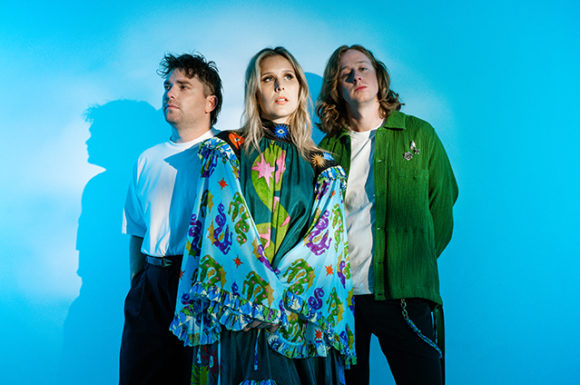One listen to Lost Friends, Middle Kids’ forthcoming debut album, and it’s clear that the rising Australian trio is aligned with each member’s own vision. Its 12 songs veer from brittle blasts of indie rock to elegiac piano ballads to pop anthems destined to ignite stadium singalongs.
Already armed with a sleeper hit (“Edge of Town”), and with Lost Friends expected in May, the band, including singer-guitarist-songwriter Hannah Joy, bassist Tim Fitz, and drummer Harry Day, is poised to break out well beyond its native Sydney in 2018.
Lost Friends brims with radio catnip, from the driving wall of sound that kicks “On My Knees” into overdrive to “Mistake” and its infectious chorus that could have been lifted straight out of a long-lost Fleetwood Mac album.
As the band’s lyricist, Joy is unflinching in her ruminations, which often reflect not only the world’s turbulent state of affairs, but also the optimism and joy that keep us afloat.
“That’s so much a thread throughout this album: Even though things are tough, it’s worth believing in something good and in the idea that we can heal. And in some ways, I wanted the music to be beautiful and a respite from what’s going on.”
Lost Friends is indeed beautiful, and yet it’s also a strange brew of skittering tempos, melodies that suddenly shift from major to minor chords, and rhythmic interludes that set the band apart from its peers.
When Joy and Fitz met through mutual friends in 2014, she was taken by how “bizarre” and heartfelt Fitz’s own songs were. And the admiration was mutual.
“Hannah’s the only person I know who regularly makes people cry just by singing,” Fitz says. “Her songs will sometimes sound like how the world feels.”
They ended up writing and recording most of Lost Friends in Joy and Fitz’s home, just as they did with their self-titled EP, which was released in early 2017 to widespread acclaim and led to tours with Ryan Adams and Cold War Kids.
Despite their circuitous paths to the band, Joy, Fitz, and Day share at least one common trait: They know how to craft classic riffs that tangle up in your brain like taffy and choruses that linger long after the song has faded. And they’ve bonded over a greater sense of what their music should accomplish.
“We are obsessive about music, but we don’t see music as the end point. We see it as an amazing force of connection,” Joy says. “We’re really committed to each other as people first, and then the music comes out of that place.”
